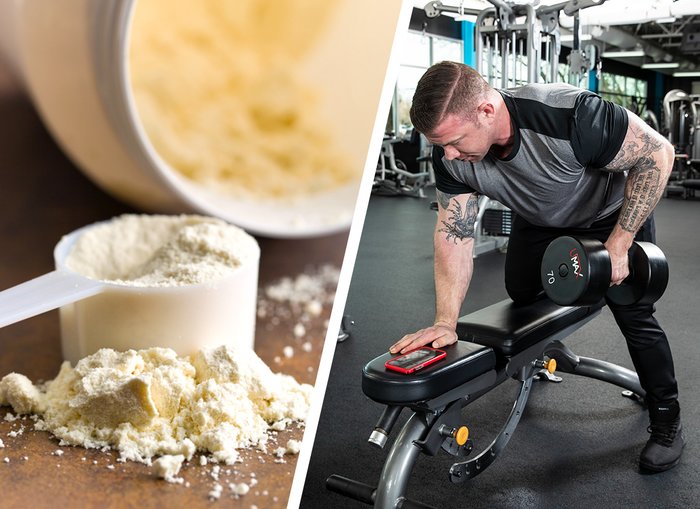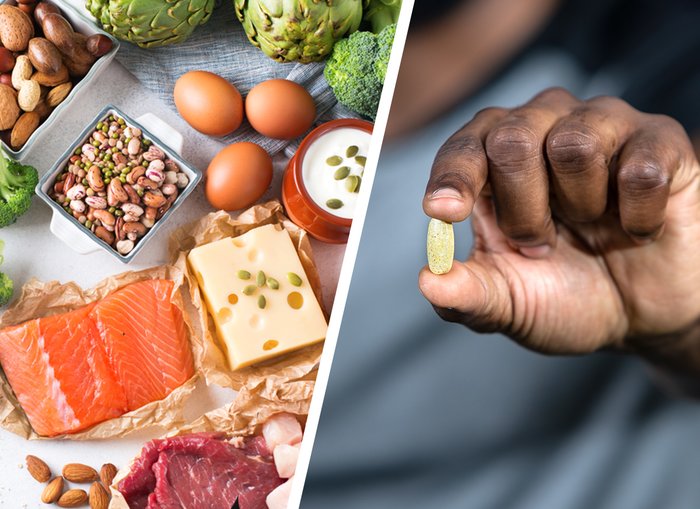When Bodybuilding.com handed out its first supplement awards back in 2005, the purpose was twofold: to help customers find exceptional products and brands, and to recognize the efforts of the many outstanding companies that make up the supplement industry.
The response was so strong, we have presented the supplement awards every year since. Over the past 15 years, they have evolved, as has the supplement industry. Certain ingredients have risen in, or out of, favor. Manufacturers have come and gone, or they have created whole new lines to help new types of athletes.
In that time, the supplement industry has gone mainstream. In 2005, food companies mostly looked askance at supplements and their makers. Then, apparently, they noted that more than half of the U.S. population regularly takes supplements. Large companies such as Abbott Laboratories, Post Holdings, and Glanbia dove into the market, acquiring supplement makers for their product portfolios and cementing supplements into the U.S. and global nutritional landscapes.
This isn't news to us. We've believed in supplements since Bodybuilding.com's founding in 1999, and remain unwavering in our faith that supplements can play an instrumental role in helping people everywhere achieve their health and fitness goals. And the millions of customers who have bought, reviewed, and taken supplements from our store agree.
The key, as we've written many times, is to take the word at face value: Supplements are intended to supplement, not replace, exercise and whole foods. For the most successful fitness fanatics we've known, supplements are the final piece of the puzzle—after they've found the BodyFit plan that works best for them and a suitable nutrition plan to go with it.

Top 6 Reasons Supplements Are Important
Now more than ever, supplements have an important role to play in your fitness journey. Here are several of the most important benefits:
Benefit 1: Supplements Take Some of the Guesswork Out of Nutrition
Supplements aren't just food in a pill. Far from it. Instead, they are a convenient way to concentrate ingredients that people want into an easy-to-take scoop or pill.
"In a perfect world, everyone would have a full and complete diet with every macro and micronutrient covered by whole foods," says Tyler McGlasson, M.K., CISSN, a senior specialist in regulatory compliance and science at Bodybuilding.com. "In the real world, due to time, money, or the sheer volume of food required, that's neither necessary nor realistic. Think about a multivitamin and everything it contains, and then think about foods an athlete would have to consume to find equivalent nutritional value."
And that's just to meet the base recommended nutrient intake guidelines.
"This is even truer for pre-workout ingredients," McGlasson says. "Creatine is found in every red meat on the planet, but to consume that recommended 5-gram daily dose for athletes, a person would need to eat something like 30 ounces of steak—even more to get the recommended amount of beta alanine, as well."
Benefit 2: Supplements are Convenient
Douglas S. Kalman Ph.D., R.D., a co-founder of the International Society of Sports Nutrition (Deerfield Beach, Florida) and an adjunct professor of sports nutrition at Nova Southeastern University in Fort Lauderdale, Florida, hammers home this point in the video series Foundations of Fitness Nutrition.
"Consider powders and drinks to be supplements of convenience—and use them that way," he says. "If a shake after training is the only way you're going to get protein at that time, have the shake. If you're trying to gain weight and you're in a position where you'd either have a shake or miss a meal entirely, have the shake."
Think of it this way: Whether your extra protein comes from wildebeest taken down on the plains of Africa or protein powder ordered from Bodybuilding.com, it's still protein. But protein powder is definitely more convenient, and if that means you'll use it more consistently, then it's absolutely worth adding to your nutritional arsenal.

Benefit 3: Supplements Can Give You an Extra Edge
"I take supplements to gain that extra edge—in training and in life—without negative side effects," says Heather Grant, a Bodybuilding.com senior content editor and a personal trainer, as well as a women's physique competitor and judge, who at various times has been certified by the NASM, NSCA, ACE, and CrossFit. "Yes, I could probably still fall asleep without my magnesium, and I know my green tea extract has only a negligible effect on my metabolism, but they both add to how I feel and function every day, and that makes them worth it to me."
Benefit 4: The Food You Eat Isn't as Nutritious as It Used to Be
Thanks largely to soil depletion, fruits and vegetables aren't as rich in vitamins and minerals as they once were. When researchers from the University of Texas at Austin's Department of Chemistry sought to gauge how the nutritional content of 43 fruits and vegetables evolved from 1950 through 1999, significant declines were found in protein, calcium, phosphorus, iron, riboflavin (vitamin B2), and vitamin C.
There's no reason to think that trend has reversed in the 21st century. If anything, it's probably accelerated. One way to offset getting less nutrition in your food? Pop a daily multivitamin/mineral.
Benefit 5: Supplements Make Certain Diets Easier to Follow
Supplements can help support even a balanced diet, but they really come in handy for people on diets that restrict certain things.
For example, on a low-carb diet, milk, which contains lactose, can be replaced by a low- or no-carb protein powder. On a keto diet, it can be tough to hit the prescribed macros, but taking medium-chain triglyceride (MCT) oil and omega-3 fatty acids in supplement form can help make the diet work. On a vegetarian or vegan diet, deficiencies of vitamin B12 and iron can develop, since they are found mostly in dairy and red meat. When certain foods aren't an option, supplements are the best way to avoid a deficiency.

And if your diet is simply one where you are eating in a caloric deficit—or burning more calories than you consume daily—supplements like protein and caffeine have been shown time and again to help counteract intense cravings and control appetite.
Benefit 6: Supplements Can Save You Money
"Consuming a heterogenous diet full of highly nutritious, 100-percent organically grown or raised foods is ideal, but it's also expensive and not available in the vast majority of the world's markets," says Chris Lockwood, Ph.D., an assistant professor in the School of Exercise & Sports Science at the University of Mary Hardin-Baylor (Belton, Texas).
Enter supplements. Getting back to that earlier comparison of a 5-gram daily dose of creatine versus 30 ounces of steak, yes, the creatine is more convenient, but it's also cheaper—by a long shot. A daily dose of creatine monohydrate usually costs 10-15 cents per serving. By comparison, an equivalent 30 ounces of dry aged beef will run you $84 on a good day. There's a similar disparity between fish oil and fresh fish.
Similarly, nutritionists and researchers like Kalman, Layne Norton, Ph.D., and Brad Schoenfeld, Ph.D., have been saying for years that hard-training athletes should aim to eat at least 0.8-1.0 grams of protein per pound of body weight a day. You may be able to budget that much meat and eggs into your diet for a couple of grocery store trips, but if your goal is to train consistently for months—or years, or for the rest of your life—shakes are your wallet's friend as much as your muscles'.
It's Time for You to Vote!
The Bodybuilding.com Supplement Awards rely on votes from customers like you, so cast your vote today! There are 20 categories in all, with four nominees per category.
There's no better way to ensure that the products you love get the recognition they deserve than to support them with your vote. Voting runs from August 15-20, and winners will be announced shortly thereafter!

